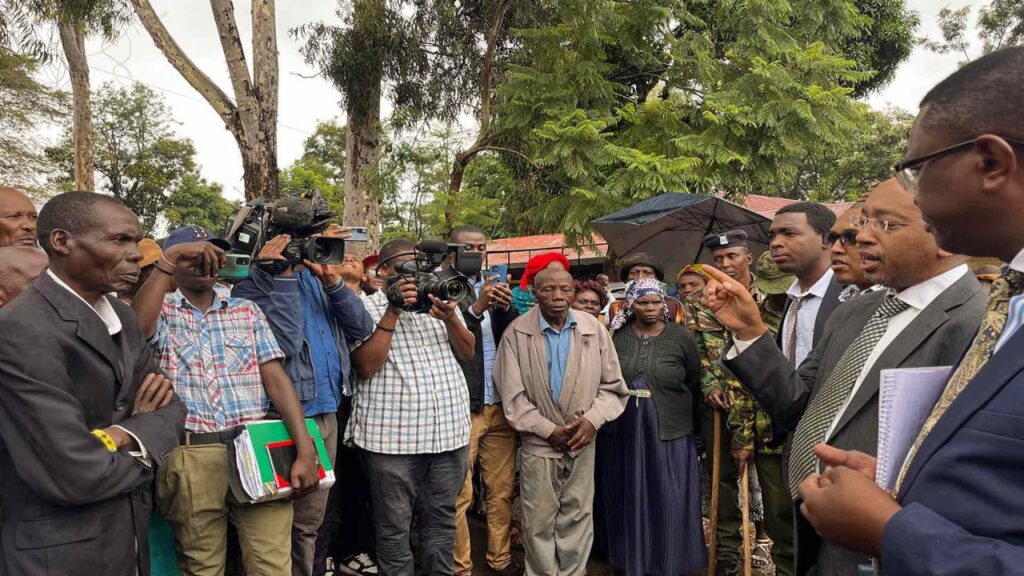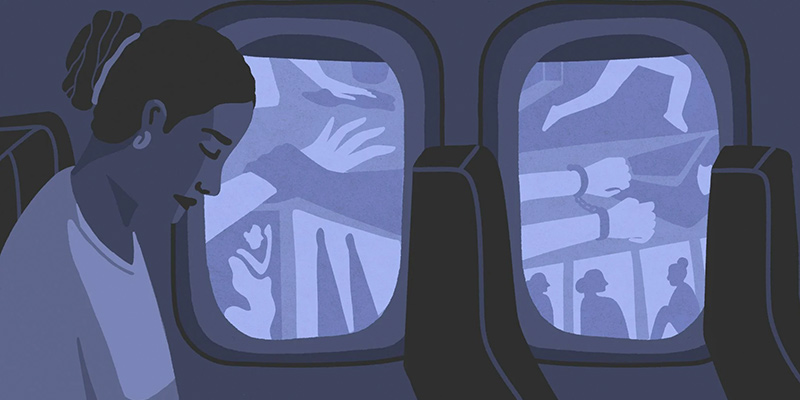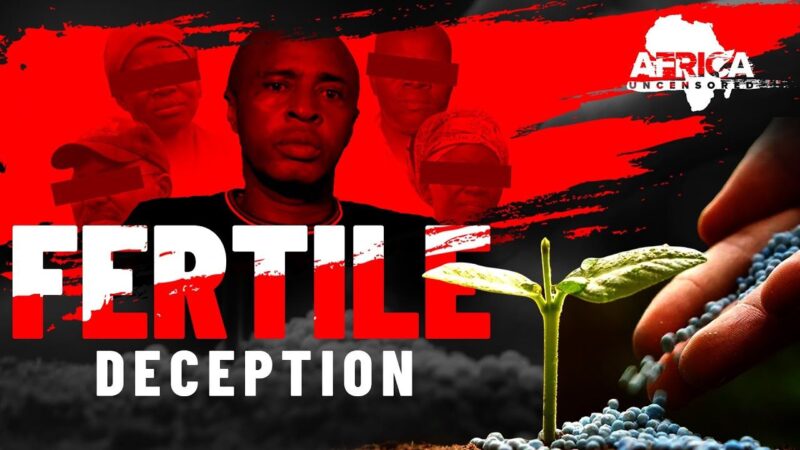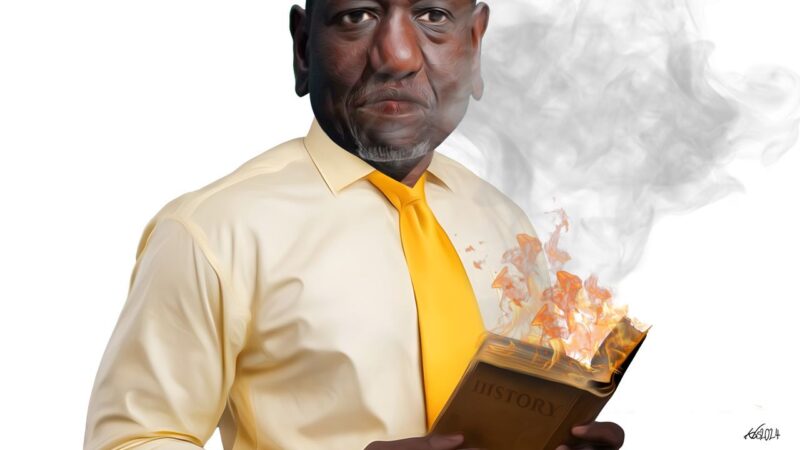Navigating the law
There is currently no legal framework in Kenya which provides for the uniqueness of gestational surrogacy, leaving its participants to work around the existing laws and, in some cases, to bend them to the limit. This journalist even recorded one agent who seemed to suggest that hospital staff could be bribed to falsify birth certificates.
“Because there is no legal framework for surrogacy that would transfer the child to the commissioning parent, the closest framework that exists to permanently transfer parental rights is adoption via the courts,” said Bobby Mkangi, a constitutional lawyer and expert in child rights and protection who served on the task force that drafted the Adoption Regulations.
But the adoption route is closed, by law, to many who might want to commission a surrogate baby in Kenya.
The Children Act says adoption is only permitted under “special circumstances” to sole applicants seeking to adopt children of the alternate sex (i.e. a single male cannot adopt a girl, and a single female cannot adopt a boy); and to sole foreign females.
The law does not allow adoption, even under “special circumstances”, to sole applicants or couples who are unmarried, to “homosexuals” and to “sole foreign males”.
The government went one step further in 2019 when it banned all international adoptions.
Despite these restrictions, agencies such as Gaurav Wankhede’s advertise Kenya to gay clients. “Unfortunately, gay surrogacy is not legal in every country. Which leads to many broken hearts in the LGBT community. Surrogacy Agency Kenya is right here to make your dreams come true and resolve all the obstacles related to gay surrogacy,” its website says.
New Life Global also recommended Kenya as a destination for “Single Intended Fathers or Same Sex Couples” on its website, although when contacted they said they had closed their Kenya branch down in 2019. Their Kenya website remained active until a few days after receiving our questions, which they explained as an oversight by their IT team.[/vc_column_text]
[vc_column_text]“Despite the fact that surrogacy is not banned in Kenya, we saw that the legal part of the procedures was not regulated quite well,” New Life explained.
These agencies and their local handlers have been relying on narrow loopholes and other legal grey areas created in part by the lack of any legal recognition of surrogacy.
Surrogates are particularly exposed because the law recognises their rights as mothers, but not as surrogates. Lacking clear legal status themselves, they are seldom provided with independent legal guidance.
Commissioning parents who venture into the legal minefield of surrogacy in Kenya also risk losing their money, children, or both — either to the state which might intervene by taking the child away, or to surrogates who later backtrack and decide they want to keep the child. Allegations of human trafficking are also a real concern.
Enricah Dulo, a specialist family law advocate and a legal expert in gestational surrogacy practice in Kenya, explained that the formal adoption process set out in the Children Act is complex and will take “a minimum of three months”.
“The system is designed to protect the interests of the child at all times and to prevent human trafficking,” she said.
“Adoption involves a period of trial parenting that is supervised by officers from the Department of Children Services or an approved adoption society. The final adoption order is confirmed by a judge of the Family Division of the High Court, taking all factors into consideration.”
Heterosexual married couples do not have the same legal challenges as gay couples or single parents because the adoption route is open to them in Kenyan law.
One of the pathways some commissioning parents follow is to avoid adoption altogether, Dulo said, and to apply for legal custody and parental orders of the child instead.
Legal custody also sidesteps the government’s 2019 ban on international adoptions, it seems.
Dulo said she has been helping commissioning parents seek legal and parental orders for children born to them out of gestational surrogacy agreements by filing cases, not at the High Court, but the Children Court.
Dulo maintains that certain sections of the Kenya Constitution (Art. 53 (2)) and the Children Act (Sect. 4(2)) provide a degree of leeway because they state that the best interests of the child are of paramount importance when considering any matter.
Although less time-consuming and less complex than adoption cases, there are still some important checks that a Children Court magistrate will insist on. These include DNA test results to confirm a genetic link between baby and commissioning parents, as well as consent from the surrogate mother relinquishing all her rights over the newborn.
Once an order has been issued by the Children Court, Dulo approaches the Department of Civil Registration to issue a birth certificate in the name(s) of the commissioning parents.
But some agencies appear to have found a short-cut around even this shorter route. This reporter interviewed two surrogates who claimed, independently of one another, that their surrogacy agencies had arranged for the commissioning parents’ names to be entered straight into the surrogate baby’s birth records when they are born.
This method is thought to be illegal, as it not only risks children being trafficked but also denies the surrogates their legal rights as the birth mothers.[/vc_column_text]
[vc_column_text]Kenya’s Births and Deaths Registration Act makes no special provision for the genetic variables of surrogacy. “By legal definition the person who gives birth is the legal mother whose name should be entered into the notification,” said Professor Marion Mutugi, a geneticist and Vice Chancellor of Amref International University.
Surrogate Minnie (details changed to protect her) was contracted by one-time New Life Kenya manager and surrogate recruiter to deliver a baby for a Kenyan couple whom she never met.
After the embryo transfer, the recruiter put her in a rental house on the outskirts of Nairobi for the entire nine months of her pregnancy.
She attended all her antenatal clinics at the hospital where she would later give birth.
Minnie said she was checked into the hospital under the name of the commissioning mother.
She said she was not allowed to see the child after it was born, and claimed that the commissioning parents’ names were entered in the birth notification at the hospital.
The birth notification is later used to generate a birth certificate by the Registrar of Birth under the Department of Civil Registration.
Minnie was paid Sh685,000 by the agency.
Minnie also told the story of her friend who carried a child — this time for a foreign couple through an unnamed surrogacy agency. She, too, gave birth at the same hospital, never saw the child and the parents’ names were entered in the birth notification. (Asked to put this reporter in touch with her friend directly, Minnie said her friend did not wish to be contacted).
Another surrogate, Judy (not her real name) told this reporter about a fellow surrogate she knows who gave birth at another hospital in Nairobi and who also claimed that the commissioning couple (both foreigners) were entered in the birth notification at the hospital – again through an unnamed surrogacy agency.
We contacted both hospitals named to us by the surrogates. One did not respond to our queries, while the other, through a lawyer, confirmed that “our practice in the processing of birth notifications has always been that the gestational carrier of a baby is the birth mother of the baby and the carriers’ name is the only one that is allowed to appear in the Birth Notification”.
The lawyer adopted a hostile tone to any suggestion that the hospital’s staff might be complicit in bypassing the law.
Instead of offering to look into the allegation, the lawyer dismissed it as “frivolous and vexatious”.
The one-time New Life Kenya manager and surrogate recruiter denied all allegations and referred us to her lawyer who did not respond except to warn about the laws of defamation, criminal libel and malicious falsehood.
These denials notwithstanding, the impression that surrogate agencies do conspire with hospital staff in order to short-circuit birth registration laws was furthered when this reporter posed as a Kenyan commissioning parent called Angela, and approached the African Fertility Agency.
Agency co-owner Jahjah had the following taped phone conversation with the undercover reporter:
Jahjah: Ule mtoto wako atazaliwa (Your baby that will be born)
Angela/Naipanoi: ehh? (Yes?)
Jahajah: Huwa tunachoranga na Hospitali alafu birth certificate inatoka na complete majina yenu, yako na mzee (We make arrangements with the hospital so the birth certificate has you and your husband’s name)
Naipanoi: Ohh majina yetu? So you talk with the hospital natoa kitu kidogo? (Oh, our names? You talk with the hospital and we give a small token?)
[…]
Jahjah: Na si unajua Kenya saa zingine unaeza fanya mambo mawili kidogo usaidiwe. (You know in Kenya, you need to do one or two things and you are assisted)
Naipanoi: Yes Kenya iko hivyo (Yes, Kenya is like that)
Jahjah : Alafu at the same time, hatutaki kurisk kazi ya watu huko hospitali. (At the same time we don’t want to place people’s careers at risk at the hospital)
[…]
Naipanoi: Yeah true. Pia unajuanga kusaidiana ni muhimu….. ‘cause unajua venye Kenya iko (Yeah that is true. It’s good to help out. That’s how things work in Kenya.)
Jahjah: Hio ni yangu na wewe, hakuna mtu mwingine anaweza (That is between you and me, no one else can deliver what I have offered)
[…]
Naipanoi: Ehh, ohhh..utatengeneza and I won’t have to undergo all that, the adoption, the nini..(So you’ll fix that and I won’t have to undergo all that, the adoption, and all that)
Jahjah : Hata hakuna mambo na adoption. Bila hata kutengeneza hio (birth certificate) hakuna adoption… (Adoption is not even necessary. Even without sorting that (birth certificate) you won’t go through adoption.)
Jahjah denied all allegations against him — including a specific question about the phone call with “Angela”.
Wankhede — Jahjah’s business partner in African Fertility Agency, and the person who had first put “Angela” in touch with him — did not respond to any questions.
Ironically, Dulo recalled that Jahjah and Wankhede had both attended her regular training workshop on “Gestational Surrogacy and Transfer of Parental Rights in Kenya”, in which she teaches participants how the legal framework applies.
She commented: “Whereas it is true that there is still no legal framework regulating gestational surrogacy and the transfer of parental rights in Kenya; this does not in any way mean that it is impossible to have the commissioning parents listed in the birth certificates, unless parties engage in deception and other unscrupulous activities.”
“Agencies, clinics and commissioning parents should engage an advocate and have the transfer of parental rights and orders directing the Registrar of Births to list the commissioning parents in the birth certificates done through the court process.”
The sex deception
This reporter is also aware of a case involving a surrogate and a single gay commissioning parent.
The case is sensitive and complex. The surrogate asked not to be named or identified in any way.
But in essence: after the surrogate had been implanted with an embryo (the commissioning parent’s sperm, and a donor’s egg) and carried the baby to full term, she and the parent pretended to have conceived the child sexually, and not through gestational surrogacy.
She then waived her rights to the child, and gave the commissioning parent custody.
The surrogate said the entire process was very stressful for her: “What I did was not child’s play,” she confided. “There were times when during the process I honestly feared I might end up in prison,” she said.
Parents’ plight
Like many businesses promoting surrogacy in Kenya, foreign-owned agencies like Become Parents and New Life Global Network (see previous story) appear to target foreign gay couples and lure them with attractive packages of around Sh3.5 million ($32,000).
This is a fraction of what it would cost in western countries like the United States, where packages cost around $120,000 (Sh13.1 million).
The bargain prices available in Kenya are at the expense of desperate surrogates, who are paid far less than their counterparts in the West.
While the businesses advertise Kenya as a safe, friendly and affordable country, parents are often unclear whether this option is legal or not. In reality, parents are at risk of losing their money, children, or both, to surrogates and to the state.
And while surrogacy can be an incredibly fulfilling experience for parents, some agencies have been accused of taking advantage of their naivety and desperation.
In March this year, a surrogacy agency owner called Winnie Warigia Maina appeared in court in a case that received front-page media attention. Maina had reportedly been charged with defrauding Dion William Van Aardt, a Dutch national living in Kenya.
Van Aaardt testified that he had paid Maina Sh2.9 million ($26,200) to arrange for IVF and a surrogate, but was discouraged by Maina from ever meeting the surrogate in person. Months later, Maina allegedly told Van Aaardt that the surrogate and baby had “died”, and requested funeral expenses, only for Van Aaardt to discover that his sperm lay untouched at the IVF clinic, and had never been used.
Warigia reportedly denied the charges and was released on bail. The case continues.
‘Ripped off’
Monica, the surrogate who was forced to have a late-term abortion (see previous story), also claimed that her commissioning parent was overcharged and made to pay expenses that the agency co-owned by Wankhede and Jahjah never incurred.
The parent travelled to Kenya for two weeks as part of the surrogacy package offered by the agency.
During this time, the agency erected a barrier between Monica and the parent, Monica claimed, thereby ensuring there was no communication between them.
“I finally met the parent at the airport, when we flew out to his home country together where I was to give birth,” Monica said.
This was the point at which they both discovered the actual fees being charged by the agency, Monica alleged: “While we sat together on the flight, the parent discovered from me that a lot of what he had paid for seemed excessive. For example, I was just staying at the surrogate hostel but they said that I was costing over Sh100,000 a month for rental, food, upkeep and a personal maid.”
“They also claimed I had made several more visits to the hospital than I actually did,” Monica claimed.
Monica also claimed that six months into her pregnancy, Jahjah had offered her Sh100,000 extra to give birth in the commissioning parent’s country. She agreed.
But on the flight the parent revealed he had actually paid Sh300,000 to the agency, after being told that her family had demanded this additional sum to fly out with him.
Monica also learned, through her commissioning parent, that the surrogacy contract between the agency and the parent, which she was never given sight of, stated she would be paid Sh1.5 million. In fact, Monica claims she had been offered Sh630,000.
Monica’s allegations could not be independently verified, because she does not have direct access to the financial details in question.
However, she is not the only African Fertility Agency surrogate who claims to have discovered that her pay didn’t match the contract signed by the parent.
A pregnant surrogate on a Sh640,000 pay package threatened to run away after discovering the contract between parent and agency billed her services at Sh1.5 million, according to an insider sympathetic to the surrogate who claimed to have direct knowledge of these financial arrangements.
These allegations were put to both Wankhede and Jahjah.
Kioko denied any wrongdoing. Wankhede never responded.
Stranded
For gay Australian commissioning parents Ryan and James (thought to be their real first names), their experience in Kenya was hellish. The couple were stranded in the country after Wankhede’s Become Parents agency allegedly provided them with “not one, but two fake birth certificates” that their embassy rejected.
Their baby was born in 2018. They claim the surrogate provided fake details that were entered in the birth notification. The notification details helped generate the birth certificate.
After providing the certificates to the embassy for the baby’s passport and citizenship application, the embassy claimed they were fake and refused to assist.
“It soon hit the couple that their situation was dire. They were stranded with a 5-month-old across the globe in a third world country with no timeframe for when they could get out,” according to a blogpost about their experience that was posted by someone called Jet Lake in 2019.
According to the blog, they confronted Wankhede, who reportedly replied: “My agency had tasked obtaining the BC [birth certificate] through a local contact person, and I cannot reach him at present”.
It seems the illegal practice of bypassing Kenya’s birth registration requirements in order to smooth the path for foreign surrogates (see previous section) may have come back to haunt Become Parents and their unsuspecting clients.
Wankhede would later claim that “the certificate just wasn’t processed correctly by Kenyan Authorities and a new certificate was being generated”. But this, too, was reportedly rejected as a fake by the Australian High Commission.
The increasingly panicked couple then visited the Department of Civil Registration seeking help themselves, but found none. Going to court was riskier, their lawyer told them. They had a high chance of losing the child to the state because of their “illegal” marital status.
The blog doesn’t reveal how the plight of Ryan and James was resolved, but it continues to live online and paints Kenya as a “commercial surrogacy nightmare”.
According to Wankhede’s former business partner Bill Houghton, an Irish single parent, using an unnamed surrogacy agency, came unstuck when his baby’s DNA did not match his. The Irish Consulate in Nairobi initially declined to issue the baby with citizenship or a passport. After being stranded in the country for weeks, the embassy finally relented. He was required to adopt the baby in Ireland.
In this case, constitutional and human rights expert Bobby Mkangi smells a rat: “Unless he was appointed to act as a guardian through a guardianship order then everything else is illegal. It’s against the law in Kenya for single parents to adopt, and I can’t see how he would have been allowed to leave the country unless he paid off the immigration control officers at JKIA.”
Mkangi is also concerned that such situations could haunt the child’s life forever. “Any irregularities in the child’s legal status at this stage could mean they miss out on certain rights as citizens of their adopted countries,” he pointed out.
Wankhede did not respond to detailed questions, including about the incidents involving Ryan and James as well as the Irish single parent.
Arrested and left empty-handed
In a worst-case scenario, commissioning parents face arrest and losing their child.
In 2018, police arrested alleged surrogate mother Josephine Muthoni Kariuki (a genetic mother whose eggs had contributed to the embryo) together with commissioning parent Neo Kian Fu, a Chinese national, as well as a Mombasa doctor who had assisted the duo.
They were charged in a Mombasa court with engaging in “acts that promote child trafficking”, according to a charge sheet seen by this reporter.
The surrogacy agreement reportedly unravelled after Kariuki changed her mind about handing the baby over to the commissioning parent.
Police appear to have concluded that the agreement whereby the parent would adopt the baby before departing the country was illegal, and charged the trio. The baby was placed in a children’s home.
The accused denied the charges, and the case was eventually dropped due to a lack of evidence.
It is understood that the child now lives with the surrogate.
This reporter later found the surrogate in one of the surrogate WhatsApp groups she had joined. She claimed: “I was never a surrogate. If I was, why did the court grant me the custody of my son?”
Reviewing all these horror stories told by commissioning parents, Mkangi said: “This is why surrogacy agencies look for countries with weak legal enforcement regimes and weak child protection frameworks to exploit and manipulate. As a result, poor surrogates and desperate parents are put in situations that force them to break the law.”
Almost a decade and a half after the first surrogate baby was born in Kenya, the country still doesn’t have a legislative framework to regulate gestational surrogacy and assisted reproduction.
Over the years, however, there have been many efforts by female lawmakers to address this — all of them have so far been frustrated.
Suba North Member of Parliament Millie Odhiambo-Mabona has been at the forefront of the campaign. In 2014, she sponsored the In-Vitro Fertilization Bill, revived it in 2016 and then reintroduced it in 2018.
Former nominated Senator Judith Sijeny also tabled a bill in the upper chamber in 2014, but it was never passed. Latterly, Nakuru Senator Susan Kihika has also joined the effort by sponsoring the same bill that was initially introduced by Sijeny. However, these bills were never passed into law.
The current situation is not only stalled but it is also controversial and complex.
Two bills tabled in 2019 are waiting to be passed into law, each of them, among other things, laying out the conditions and procedures for surrogacy practice in Kenya.
One is before the Senate, while the other is in the National Assembly.
The Senate legislation, sponsored by Kihika, is called the Reproductive Healthcare Bill. It provides an overarching legal framework to govern safe access to a wide range of reproductive health services for women. This includes family planning, pregnancy terminations, adolescent reproductive health and assisted reproduction — including surrogacy.
But it has stirred strong opposition from the powerful religious lobby, who claim it promotes abortion and teenage access to family planning methods. As a result, the bill has become bogged down in the Senate, and is currently being overhauled entirely.
Kihika did not respond to requests for comment.
In the National Assembly, the experienced Odhiambo had cleverly sponsored two bills — a Reproductive Healthcare Bill and an Assisted Reproductive Technology (ART) Bill. “It was a purely tactical move,” she explained to this reporter. “The Reproductive Healthcare one is very contentious while the ART Bill — which tackles surrogacy — is less so. I had to separate the issues so that in case the former doesn’t pass, the latter would be.”
But it has not been plain sailing, either. Although the ART Bill was passed by the National Assembly, it was shot down in the Senate.
It has now undergone some amendments back in the National Assembly’s health committee, and underwent a second reading in the National Assembly earlier this month.
There are many similarities between the Odhiambo and Kihika bills. Whereas Odhiambo’s bill touches on surrogacy in brief, Kihika’s is much more detailed. Odhiambo is on record in the National Assembly saying that she would not object to the bills being harmonised.
Perhaps the most significant proposal is that both would abolish commercial surrogacy.[/vc_column_text][vc_column_text]Commissioning parents would only be permitted to pay a surrogate’s direct medical expenses, loss of earnings suffered during the pregnancy period and insurance cover in case of disability or death, according to Kihika’s proposals.
Commissioning parents would enter into a signed gestational surrogacy contract with a surrogate. Each party would also be represented by a separate legal counsel, with the commissioning parents paying the surrogate’s legal fees.
Surrogates are divided over the possible demise of commercial surrogacy. On the one hand, Monica is elated: “Paid surrogacy encourages exploitation. If I could be a surrogate again, it would never be for money. I would only do it for free, for a couple unable to conceive a baby naturally.”
But surrogate Judy, on the other hand, is going through a difficult time financially and is considering being a surrogate again. “I closed my business. All the money’s gone. If they ban commercial surrogacy, how will I survive?” she asked.
The proposed change could spell the end of the more controversial agencies, although there is likely to still be a need for those which can provide a more limited administrative service.
As Kihika’s bill stands, the commissioning couple would need to prove their inability to have children naturally in order to be allowed to enter into a surrogacy arrangement.
The other significant change proposed in both bills is that the commissioning parents are recognised as the legal parents, with their names being entered in both the birth notification and birth certificate (a reversal of the current situation).
In addition, a child born as a result of gestational surrogacy would also take the citizenship of the commissioning parents and not that of the surrogate mother (another reversal).
With the passage of this law, a surrogate mother relinquishes all parental and custodial rights over the child as soon as she gives birth.
While these changes would smooth the path for commissioning parents, including foreigners, some experts have raised concerns.
Professor Marion Mutugi, a geneticist and Vice Chancellor of Amref International University, has proposed multiple amendments to the ART Bill which she said needed to be much clearer on who can contract a surrogate: “Is it a single woman, married, unmarried live-in partners, same-sex, who?”
Enricah Dulo, a specialist family law advocate and legal expert in gestational surrogacy practice in Kenya, said the legal parentage should not be transferred from a surrogate to commissioning parent based on the strength of a surrogacy agreement alone as there is also a need to protect children from incidences of human trafficking.
As a further safeguard, Dulo would also like the law to provide for a mandatory DNA test after birth, in order to ensure that either the sperm or egg or both were from the commissioning parent(s). This is also to confirm to the surrogate that she bears no genetic link to the child(ren) she carried to term.
“Kenya is known as a source, transit and destination country for human trafficking,” Dulo warned, adding that “parental rights should still be transferred through a court order” after DNA has confirmed a genetic link to the commissioning parents.
“Any surrogacy bill that passes must recognise the rights and welfare of the child as being of paramount importance,” Dulo said.
Postscript: My encounter with JahJah
At the beginning of this investigation, in mid-2019, I posed as a commissioning parent as a way to crack open the secretive world of commercial surrogacy in Kenya.
It was Gaurav Wankhede who first fell for my story. Posing as Angela, a married woman, I told him my “husband” and I desperately wanted a child.
After some toing and froing over email, he put me in touch with his “local manager”, Josephat Kioko Jahjah, who would arrange for me to visit an IVF clinic for tests and would also pair us with a surrogate.
I pumped Jahjah for as much information as I could, which was how he came to tell me about ways to bypass Kenya’s birth registration law.
As I was reluctant to expose myself to any medical tests, as commissioning parent “Angela” I slowly melted away.
But Jahjah came to know I was really a journalist in 2020. Some surrogates to whom I had identified myself as a reporter had forwarded my messages to him. He later sent me sms’s warning me to stop looking into his surrogacy business, as I was “not Police”.
At one point, he added my number to a surrogate WhatsApp group and then recorded a voice note warning surrogates to stop sharing information with me.
These bullying tactics made some of my surrogate contacts go cold; a few who had previously agreed to give interviews later changed their minds.
I could sympathise with them: some surrogates had already described the control Jahjah and other surrogate recruiters had wielded over them. Some told me how Jahjah had boasted of his financial muscle and good connections with the police.
Much later, when my research was done, I summarised all the allegations I had gathered against Jahjah and Wankhede and sent them via email to their advocate in mid-February 2021, asking for their comment in advance of publication.
Given that I had started this investigation by going undercover, and that I am a freelance journalist, I agreed with my editor and co-publishers, The Elephant and Africa Uncensored, to send the questions on a formal letterhead as a way of underlining my credentials.
Jahjah responded via the advocate the following day, dismissing the allegations as “false and untrue”, but offering to meet “any day and time … to support my claim”.
I was surprised at this offer, and immediately wary of it.
A few days after I responded to Jahjah, requesting a formal on-camera interview with him on a specific date, a surrogate texted me out of the blue to inquire if it was true Jahjah had reported me to the police for investigating and destroying his surrogacy business.
Although I was keen to interview Jahjah in person, I now decided to play things very safe. I would not confirm the exact venue of the interview until the last minute, and I went with two colleagues from Africa Uncensored.
On the morning of the interview I called his number, and an excited-sounding Jahjah picked up. He thanked me for confirming the venue, and said he was looking forward to the interview.
We had chosen the Distrikt Lounge, a restaurant in Ongata Rongai that would be quiet at that time of day. My colleagues had pre-booked a private room at the venue adjoining a pleasant lounge area where the manager had said we were welcome to film an interview.
Jahjah arrived 15 minutes late, curiously underdressed for the cameras. He was wearing a wrinkled loose-fitting sleeveless red T-shirt, baggy blue sweatpants, and casual black shoes. No mask.
He looked confident, arrogant even. Carrying two phones and a charger in one hand, he started distributing his business cards with the other. We each reciprocated with our press cards in turn, but it was mine that Jahjah was most interested in. He asked me to take off my mask, and his eyes moved back and forth between me and my card for some time.
Jahjah declined to sit where our cameraman, Sam Munia, requested and instead positioned himself by the doorway saying he was waiting for his advocate, whom he said was on the way.
It was at this point that Munia noticed three men sitting around a table in the outdoor lounge area taking photos of us on their phones. Pretending he needed a glass of water, Munia stepped outside and spotted another couple of men around the corner.
They called him over and identified themselves as officers from the Directorate of Criminal Investigations (DCI). One of them said they “wanted Naipanoi”.
Munia played for time, giving them his ID and press card details. Our producer, Peris Gachahi then stepped out to do the same.
Left alone with Jahjah, he took out his phone and started photographing me. “Why are you taking my photos?” I asked, and requested that he stop. “I just have to,” he replied, and carried on.
The officers were now losing their patience. Gachahi summoned me to their table, where they inspected my official Kenya Media Council press card and took down my details. They then claimed I was a fake journalist who had malicious intentions towards Jahjah. According to them, a sign of this was because my original letter inviting Jahjah to comment on allegations was formatted incorrectly.
Relief washed over me as my experienced colleagues handled the situation with calm confidence. Yes, they had permission to film there, and the restaurant manager was summoned to confirm it.
The policemen then questioned them about their boss. As soon as my colleagues mentioned John-Allan Namu, co-founder of Africa Uncensored and a respected investigative journalist whose track record has made him a household name in Kenya, the officers backed off.
They said they would wait for the advocate, who arrived a short while later. The officers welcomed her familiarly, one offering her a seat and saying, “Karibu wakili” (‘Welcome, attorney’). She fist-bumped them and sat down, while her eyes seemed to flash concentrated anger and hatred in my direction.
The officer in charge informed her I was a genuine journalist, and showed her my press card. She complained we were forcing this interview on her and Jahjah, but my colleagues and I disputed this. Getting up from their seats, the officers politely informed all of us that “our work is done, we don’t want to interfere,” and took their leave.
Jahjah and his advocate both looked crestfallen, defeated. Things had clearly not gone as they had planned. They conferred with each other briefly, then the advocate informed us that her clients — Jahjah and the absent Wankhede — would not be commenting. “If you want answers, get a court order,” she said. Then they left.
The three of us later drove to the nearby police station, where the DCI officers had told us they were based, to report Jahjah for harassing me by taking photos without my consent.
The officers told us that Jahjah had been there the previous day, to report his suspicions that I was a fake journalist. The officers proposed summoning him to the police station the following week to apologise to us directly. We declined.
Reflecting back on this crazy encounter with Jahjah, his advocate and the cops, I wondered how their ambush might have played out had I arrived at the venue alone.
Then my thoughts turned to the surrogates whose lives and livelihoods are tied to the African Fertility Agency. Is this how they are coerced and intimidated? And what apology will they ever be offered?
–
This is an edited version of the original story published in May 2021.
Story editing and additional reporting by Lionel Faull, of Finance Uncovered. This article was developed with the support of the Money Trail Project (www.money-trail.org)








